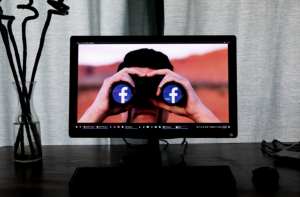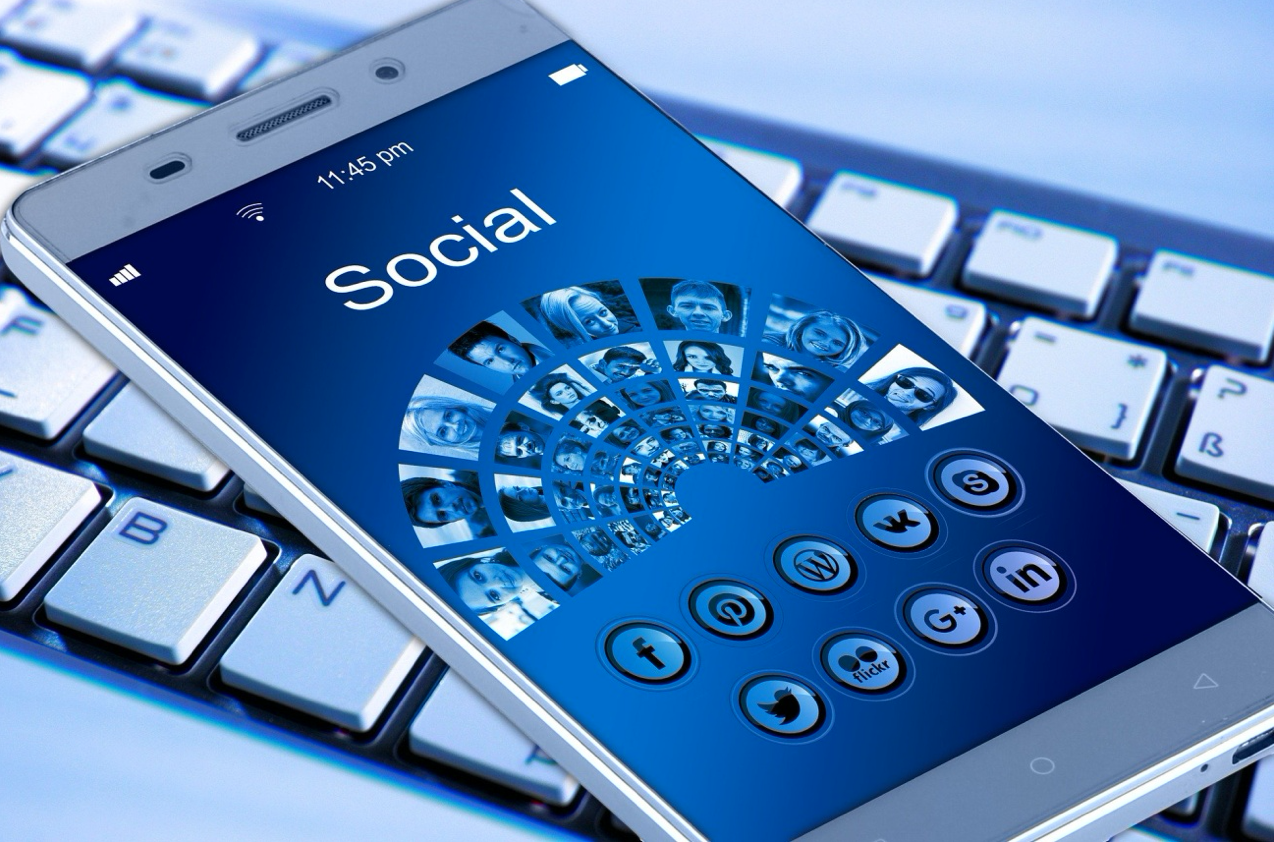Alas, social media does contribute to a growing dichotomy between the so-called haves and have-nots. Nevertheless, it is far from being the figurative devil incarnate in our digital age.
Since the dawn of civilisation, the concept of natural rights has been deeply engrained in our culture, or even inextricably woven into the fabric of fledgling societies. To justify the aforementioned claim, one can draw from a deep well of historical examples, such as the renowned Code of Hammurabi. Going back to the 18th century BC, the Code is deemed as the best-preserved legal text from the ancient Near East. Irrespective of one of the underlying principles – lex talionis (or eye for an eye), persons were not equal before the law. That being said, the document, perceived even by today’s standards as a true legal code, did make mention of contentious topics, such as women’s rights or slave rights. In spite of the inexorable advance of time, Hammurabi’s ground-breaking achievement did not fall into oblivion. Interestingly enough, a relief portrait of the King of the Four Corners can be found even over the gallery doors of the House Chamber in the U.S. Capitol.
Moving fast forward, the 17th and 18th centuries marked a stirring of a new chapter in European reality, with numerous philosophers, such as John Locke or Thomas Paine, throwing new light on the concept of natural rights, as opposed to those bestowed directly by human law. Enlightenment writers, be that Voltaire, Rousseau, or Montesquieu, acted as a veritable catalyst for irrevocable social changes, stretching from France (the French Revolution and the Declaration of the Rights of Man and Citizen) to North America. The United States followed Europe’s suit with the Declaration of Independence stating that all men are created equal, that they are endowed by their Creator with certain unalienable Rights, that among these are Life, Liberty and the pursuit of Happiness.1 Even though the last statement is far from legally binding, it is widely perceived as an inspiration for the basis of government, per se.
Now the following question arises: do people in the 21st century remain engulfed in blissful ignorance with regard to human rights’ unquestionable value? What is the need of the hour in this fast-paced reality?
Irrespective of one’s gender, age, or education, the vast majority of the European Union citizens believe that human rights are important for creating a fairer society. The highest levels of agreement with the aforementioned statement can be found in Finland (95%) and in Malta (overwhelming 96%). More importantly, roughly two thirds of those surveyed disagree with the statement that human rights are meaningless to me in everyday life.2 Pulling those pieces together, it is blatantly obvious that human rights do not fall off the radar, even in the relatively stable political climate that the European Union exemplifies.
Considering the fact that, throughout recent years, technology has gathered indescribable steam, it is worth delving into its knotty relationship with the human rights realm. Should social media be perceived as a democracy-enabling luxury, accessible only to those conveniently placed on the higher rungs of the proverbial socioeconomic ladder, or as an intrinsic human right?
It would not be a stretch to claim that social media embraces a wide array of well-established rights – it overlaps with freedom of: association, expression, and information. Since those rights are held in high esteem offline, should such a discrepancy appear in the virtual world? The ever-increasing average daily social media usage rose to an astounding 145 minutes WORLDWIDE!3 With social media slowly, but surely rising to the status of the fifth power, governments can no longer ignore its far-reaching influence, especially during times of social uproar. However, even when it comes to modern democracies, social media still remains a murky legal domain, oftentimes governed by arbitrary laws. What are the promises and perils of the opaque relationship between social media and human rights?
Freedom of expression and digital activism
Everyone has the right to freedom of expression. This right shall include freedom to hold opinions and to receive and impart information and ideas without interference by public authority and regardless of frontiers. (Article 10 of the European Convention on Human Rights4)
Throughout recent years, the concept of digital activism has taken a quantum leap forward. In its infancy, the Internet was perceived mainly as an instantaneous channel for information, disseminating it all over the world at breakneck speed. That being said, digital activism has recently reached new, unprecedented heights. Not only is it used to spark off grassroots movements, but also to mirror and emphasize real-life demonstrations. It is crystal clear that social media has already gained the upper hand over traditional media, which is gradually becoming a relic of a bygone age.
While bringing up such a subject, one cannot help but advert to the Internet-born Black Lives Matter movement and its re-emergence in 2020. The demonstrations gained an indescribable impetus mostly due to the use of social media, with people all over the world broadcasting demonstrations or prompting others to educate themselves on Black history. In May 2020, there were roughly 8.8 million tweets with the hashtag #BlackLivesMatter. To top it all off, the daily average had increased from almost 500,000 tweets (as of July 2016) to an unimaginable 3.7 million.5,6 On the flip side, TikTok, a video-sharing app, was accused of shadow banning posts related to BLM’s postulates. In the time of social unrest and upheaval, posts with the hashtags #BlackLivesMatter and #GeorgeFloyd received no views whatsoever. The platform officially apologized for a technical glitch, thereby committing itself to boosting inclusion as well as promoting diversity (we welcome the voices of the Black community wholeheartedly.7)
BLM, in turn, laid the groundwork for another protest movement – Zimbabwean Lives Matter. Since its emergence in July 2020, the movement has gathered as many as 700,000 tweets.8 Zimbabwean Lives Matter is directed towards the national government of Emmerson Mnangagwa and its continuous disregard for the rule of law.
Nevertheless, there is more to digital activism than meets the eye – especially the instant we dig slightly deeper and become aware of its darker side: hacktivism. Hacktivism employs a wide array of digital tactics, ranging from e-mail bombs to virtual sit-ins. Electronic civil disobedience oftentimes leads to overwhelming the server or clogging the bandwidth, eventually causing the targeted website to shut down. One doesn’t have to look far for examples of similar, concerted actions. In 2013, activists connected to the world-renowned hacktivist group, Anonymous, crashed 30 of the Filipino government’s websites as a response to the local politicians’ corruption. Demonstration of the disdain felt towards the government was an online component to the Million Mask March (coordinated and advertised mostly through social media itself.)
Social media and the sacred right to privacy

No one shall be subjected to arbitrary interference with his privacy, family, home or correspondence, nor to attacks upon his honour and reputation. Everyone has the right to the protection of the law against such interference or attacks. (Article 12 of the Universal Declaration of Human Rights9)
The bumpy relationship between social media and the right to privacy is at the forefront of many people’s minds, especially in our tech-saturated reality. Are pressing matters such as social profiling or location disclosure rightfully giving us sleepless nights? Of course, one could go on for hours on end elaborating on such a vexed question. However, out of all age groups it is preteens and teenagers that appear to be the most vulnerable victims of such violations. Hardly ever do adolescents delete or restrict access to their posts, with only one third of them taking such a step often or sometimes10. Moreover, a sizable proportion of youngsters fall into a pitfall of sharing too much personal information online, thereby sacrificing their own privacy. The following question arises: could we protect teenagers from their own erroneous, mindless decisions by introducing the right to be forgotten? Or would it, as its opponents fervently believe, violate the right to freedom of expression? The so-called erase bill took effect in California in January 2015.11 Being the first state to introduce such a law, California allowed minors to delete regrettable social media posts. Although the vast majority of social networking sites, be that Facebook or Instagram, allow users to remove posts irrespective of their age, the erase law arguably brought a sea change to this area of legislation in the U.S.
Is the game really worth the candle?
Alas, social media does contribute to a growing dichotomy between the so-called haves and have-nots. Nevertheless, it is far from being the figurative devil incarnate in our digital age. Not only do such sites serve as a news source, but also as an invaluable self-presentational tool, enabling us to manage our self-image online.
References:
- https://www.archives.gov/founding-docs/declaration-transcript
- European Union Agency for Fundamental Rights (2020) What do fundamental rights mean for people in the EU? – Fundamental Rights Survey (https://fra.europa.eu/en/publication/2020/fundamental-rights-survey-trust)
- https://www.statista.com/statistics/433871/daily-social-media-usage-worldwide/
- European Convention on Human Rights (https://www.echr.coe.int/)
- https://www.pewresearch.org/fact-tank/2020/06/10/blacklivesmatter-surges-on-twitter-after-george-floyds-death/
- https://www.pewresearch.org/internet/2018/07/11/an-analysis-of-blacklivesmatter-and-other-twitter-hashtags-related-to-political-or-social-issues/
- https://eu.usatoday.com/story/tech/2020/06/02/tiktok-apologizes-after-claims-blocked-george-floyd-posts/3122296001/
- https://www.businesslive.co.za/bd/world/africa/2020-08-04-zimbabwean-lives-matter-movement-grows-with-support-from-big-names/
- Universal Declaration of Human Rights (https://www.un.org/en/about-us/universal-declaration-of-human-rights)
- https://www.pewresearch.org/internet/2018/11/28/teens-and-their-experiences-on-social-media/
- https://www.foxnews.com/politics/california-allows-minors-to-delete-social-media-posts-with-erase-law


Join the conversation!